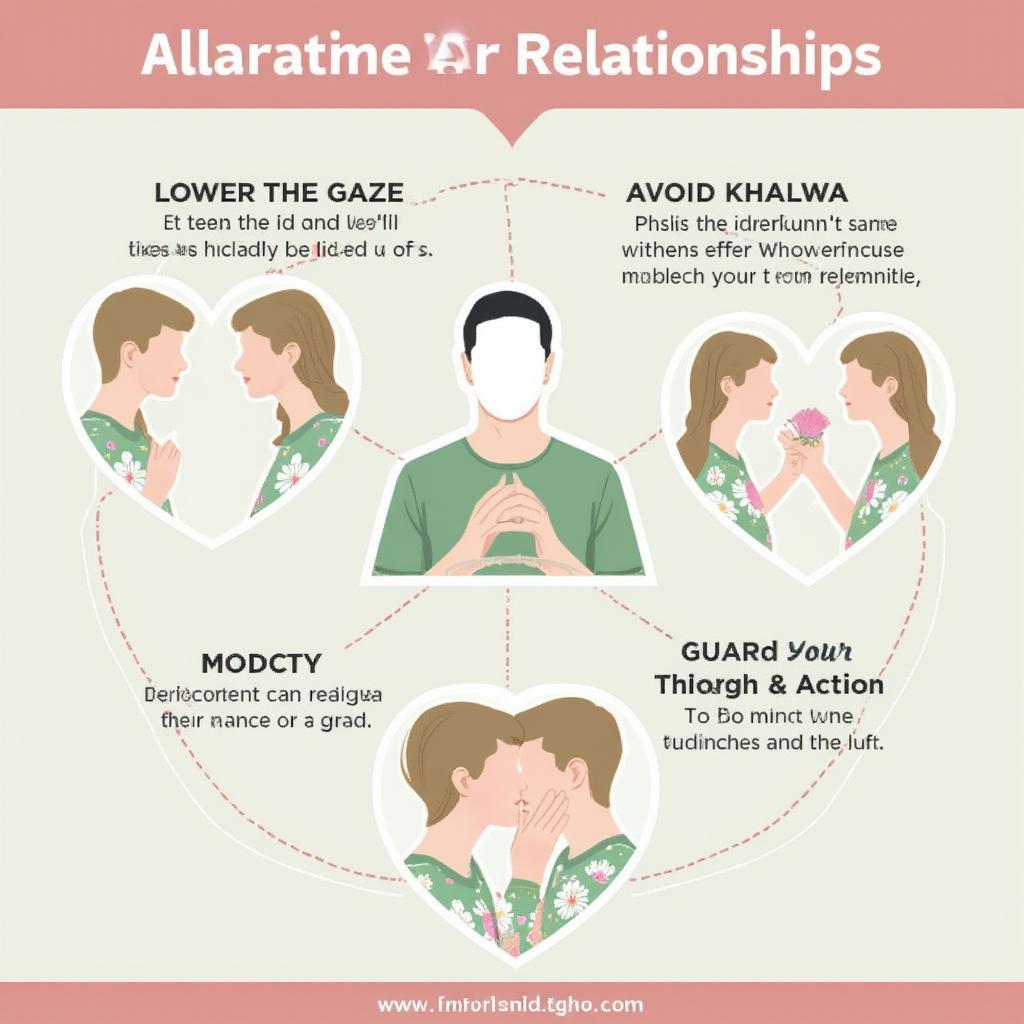Is Falling In Love Haram? This question often arises for young Muslims navigating the complexities of love and relationships within the framework of their faith. Understanding the Islamic perspective on love requires delving into the nuances of religious texts and cultural contexts. This article explores the Islamic view on love, addressing common misconceptions and offering guidance for those seeking a balanced approach to love and faith.
Understanding the Islamic Stance on Love
Islam doesn’t condemn love. In fact, it celebrates it, but within specific boundaries. The Quran and Sunnah emphasize the importance of marriage as the legitimate and sacred framework for romantic relationships. Love, within the context of marriage, is seen as a blessing from Allah, a source of strength, and a path to spiritual growth.
Love Before Marriage: A Grey Area?
The concept of love before marriage often sparks debate. While some interpret certain verses as prohibiting any romantic involvement before marriage, others argue that developing feelings for someone before committing isn’t inherently sinful, provided it doesn’t lead to prohibited actions like premarital physical intimacy or emotional entanglement that compromises Islamic principles.
The Importance of Intention in Love
Intention (niyyah) plays a crucial role in Islam. If the intention behind developing feelings for someone is to eventually lead to a halal and blessed marriage, then it can be viewed as a positive step. However, if the intention is purely for fleeting pleasure or emotional gratification outside the bounds of marriage, then it becomes problematic from an Islamic standpoint.
Avoiding Haram in Relationships: Practical Guidelines
Islam provides practical guidelines to navigate relationships in a way that aligns with its values. These guidelines offer a framework for maintaining purity and avoiding haram (forbidden) acts.
-
Lowering the Gaze: Avoiding prolonged eye contact with the opposite gender helps prevent inappropriate feelings from developing and minimizes the risk of temptation.
-
Modesty in Dress and Behavior: Dressing modestly and behaving respectfully are essential for both men and women in interactions with the opposite gender.
-
Avoiding Khalwa (Seclusion): Being alone with someone of the opposite gender who is not a mahram (close relative) is strictly prohibited.
-
Guarding One’s Thoughts and Actions: Cultivating mindful awareness of one’s thoughts and actions is crucial to avoiding haram.
 Guidance for Relationships in Islam
Guidance for Relationships in Islam
Is it Haram to Have a Crush?
Having a fleeting crush is a common human experience, and it’s not necessarily considered haram in itself. However, dwelling on these feelings excessively, fantasizing about forbidden relationships, or allowing them to lead to haram actions would be considered sinful.
Finding a Spouse the Halal Way
Islam encourages seeking a spouse through appropriate channels, such as involving family and community members in the process. This approach promotes transparency, respect, and ensures that potential partners are compatible in terms of values and religious commitment.
What if I Fall in Love with Someone Outside My Faith?
Marrying someone outside the faith presents complex challenges. Islamically, Muslim men are allowed to marry women from the People of the Book (Christians and Jews), while Muslim women are only permitted to marry Muslim men. This distinction stems from the concern of preserving the Islamic faith within the family structure.
Conclusion
Is falling in love haram? The answer isn’t a simple yes or no. Love, within the framework of a halal marriage, is cherished in Islam. Navigating love requires understanding the nuances of Islamic teachings and committing to upholding its principles. By adhering to Islamic guidelines, individuals can experience love in a way that is both fulfilling and spiritually enriching. If you need further guidance on navigating love and relationships within the Islamic context, please contact us.
FAQ
-
Is it permissible to talk to someone of the opposite gender before marriage? Yes, as long as it’s within the boundaries of Islamic etiquette, avoiding seclusion and inappropriate conversations.
-
What is the Islamic view on online dating? While online platforms can facilitate introductions, caution is advised to ensure interactions adhere to Islamic guidelines.
-
How can I control my feelings for someone I cannot marry? Focus on strengthening your faith, engaging in productive activities, and seeking guidance from trusted religious scholars.
-
Is it permissible to express love to my spouse publicly? While public displays of affection should be modest and respectful, expressing love and appreciation for your spouse is encouraged.
-
What are the steps involved in an Islamic marriage? An Islamic marriage involves a proposal, acceptance, the presence of witnesses, and the payment of a dowry (mahr).
-
What resources can I consult for further understanding of Islamic relationships? Consult trusted scholars, reputable Islamic websites, and books on Islamic jurisprudence.
-
How do I deal with the emotional challenges of unrequited love in an Islamic context? Seek support from family, friends, and religious mentors, and focus on strengthening your connection with Allah.
See also:
- Finding Love in Islam
- Building Healthy Relationships in Islam
Contact us at Email: contact@daiduongtranhba.com, address: Michigan Ave, Suite 3100, Chicago, IL 60611, USA. We have a 24/7 customer support team.

